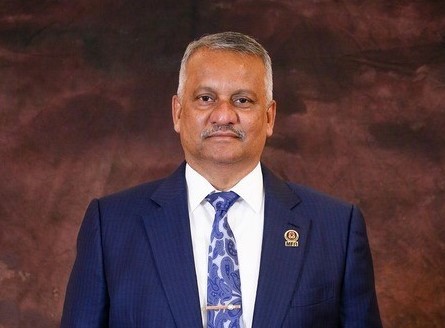The Franchise Trainer™ is a capacity-building platform that offers entrepreneurial & franchise training, MSME support initiatives, and consultancy services. In this article Sary Hamway, Founder & CEO of The Franchise Trainer™ sheds more light on the business offering and values:
Driven by decades of experience, The Franchise Trainer™ offers the most effective personalized franchise coaching to support the growth of MSMEs, and franchise businesses, and contribute to the education, capacity building, scale-up, and skill development of entrepreneurs, franchisors, franchisees, support service providers, government officials, and policymakers.

What makes us unique is that The Franchise Trainer™ brings sophisticated, content-rich franchise training courses to the marketplace, and uses progressive learning practice supported by experienced consultants, and a management team for delivering unparalleled personalized franchise coaching experience to the clients.
The Franchise Trainer™ training courses and consultancy services are designed to allow for sharing the wealth of knowledge with our audience by the elite of the franchise industry in the world, each with a proven track-record in supporting the franchise industry, entrepreneurship, and MSMEs.
Our proprietary franchise consultancy services offer innovative and reliable solutions to support our clients during various stages of franchise growth, to accelerate their business development, to achieve their desired financial objectives, and to optimize their success in business.
“Franchise training in the Middle East, like in any other region, is an essential component of building a successful and consistent brand presence. When setting up a franchise in the Middle East, we will want to consider several key aspects of training to ensure the success of your franchisees“ says Sary Hamway.

Local Market Understanding: Middle Eastern markets can be quite diverse, so it’s crucial to provide training that helps franchisees understand the local market dynamics, consumer preferences, and cultural nuances. This includes understanding local customs, traditions, and any legal or regulatory requirements specific to the country or region.
Cultural Sensitivity: Training should include cultural sensitivity and awareness to ensure that franchisees and their staff respect local customs and traditions. This is essential for building a positive brand image.
Operations Training: Comprehensive training on how to operate the franchise business is essential. This includes everything from the day-to-day tasks to managing staff, inventory, and customer service. Training manuals, operational procedures, and hands-on training sessions can be part of this process.
Product and Service Training: Ensure that franchisees are well-versed in the products or services you offer. This includes training on how to prepare or deliver the products or services to maintain quality and consistency across all franchise locations.
Marketing and Branding: Help franchisees understand your brand’s marketing strategies and guidelines. Provide training on local marketing tactics and how to leverage digital marketing channels effectively. This can also include guidance on adapting marketing materials to suit the local culture and language.
Financial Management: Financial training is crucial for franchisees to manage their business effectively. This includes understanding budgeting, financial reporting, and profitability analysis. It’s important to ensure franchisees can maintain financial sustainability.
Customer Service: Exceptional customer service is often a differentiator in the Middle East. Training should focus on providing excellent service, understanding customer expectations, and addressing any specific cultural considerations related to customer interactions.
Compliance and Legal: Ensure that franchisees are aware of and adhere to all legal and regulatory requirements in the Middle East. This includes licenses, permits, tax obligations, and labor laws.
Technology and Systems: If your franchise relies on specific software or systems, provide training on how to use them effectively. This can include point-of-sale systems, inventory management software, and any other technology necessary for operations.
Continuous Support: Offer ongoing support and resources to franchisees. This could include regular check-ins, access to a support hotline, and a network for franchisees to share best practices and experiences.
Crisis Management: In the event of unforeseen challenges or crises, provide training on how to handle them. This can include training on crisis communication, disaster preparedness, and contingency planning.
Language Skills: Depending on the specific country or region in the Middle East, language skills may be crucial. Ensure that franchisees and their staff can effectively communicate with customers in the local language.
Successful franchise training in the Middle East should be tailored to the unique needs and challenges of the region. It’s essential to maintain open communication with your franchisees and adapt your training and support based on their feedback and evolving market conditions added Sary Hamway.

Sary Hamway, Founder and CEO of The Franchise Trainer™ had one last point by saying that “Everyone must have a specific mission in life, carrying out responsibilities and fulfilling obligations towards others to have a sense of trustworthiness and self-actualization, and we at The Franchise Trainer™ have been gifted with our extensive knowledge and vast experience in franchising, and we firmly believe that our foremost mission is to help others in their businesses and lives. To us, supporting entrepreneurs and SMEs is not just an ethos or a grandiose idea, but it is an inevitable requirement that allows the continued flow of the river of success.”




